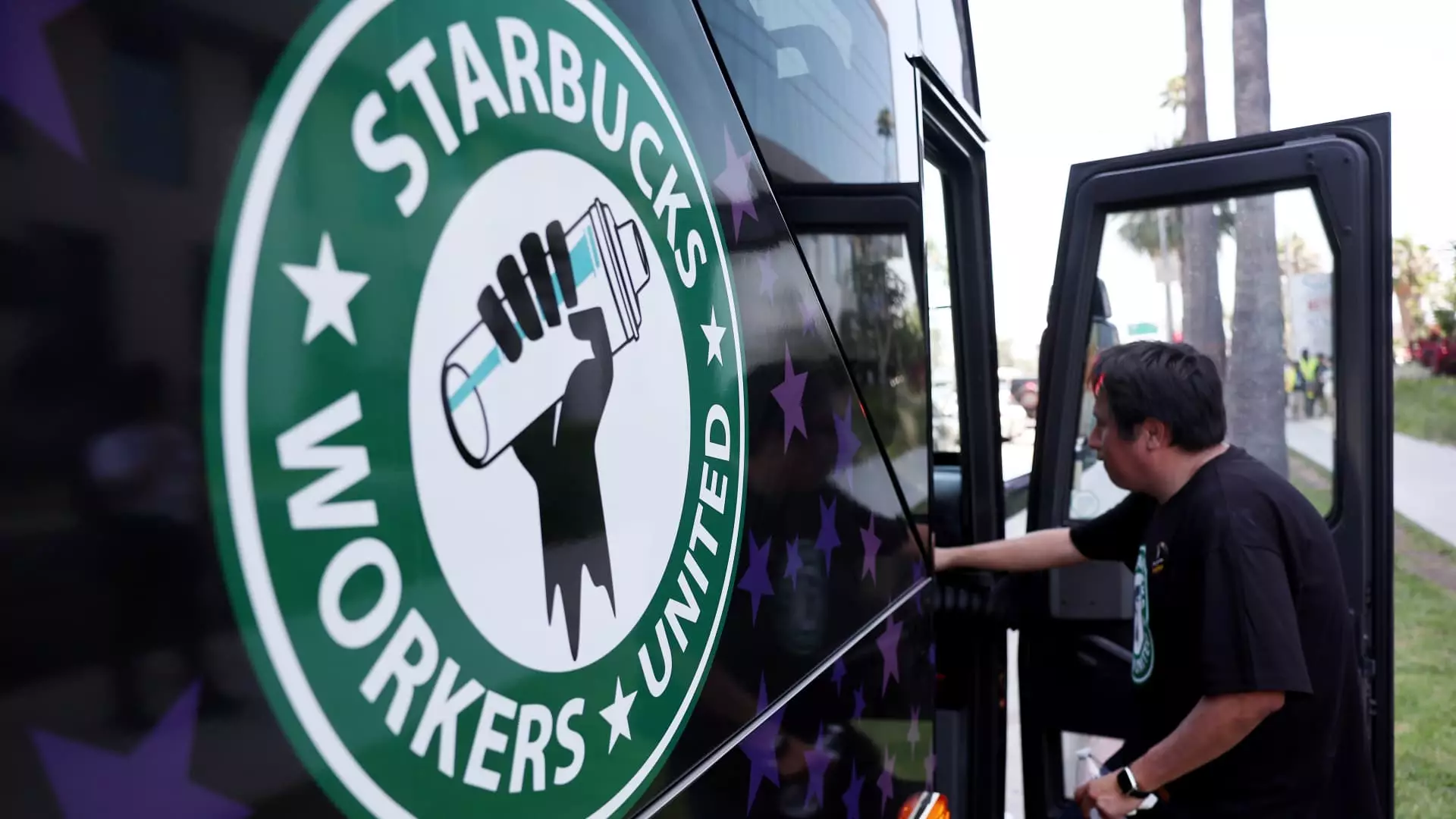In a significant escalation of labor negotiations, Starbucks Workers United recently announced that a staggering 98% of its unionized baristas have endorsed a strike, as they demand a contract with the globally renowned coffee chain. This overwhelming vote signals a pivotal moment in the ongoing dialogue between the employees and Starbucks’ management. Scheduled negotiations are set to resume in what may be the final session of the calendar year, as both sides aim to reach an agreement that would lay down a solid framework for future bargaining. Throughout the year, both parties have engaged in extensive discussions, often marked by a rigorous commitment to reaching a consensus on various pressing issues.
Despite the seeming progress made at the bargaining table—including dozens of tentative agreements—the relationship remains fraught with tension. The union highlighted that several unfair labor practice cases remain unresolved, casting a shadow over the negotiations. Key areas of concern for the baristas include competitive wage structures and comprehensive benefits packages, which Starbucks has yet to adequately address. In response, the company has pushed back against the union’s claims, citing its dedication to finding a mutually beneficial agreement. Starbucks argues that negotiations have been productive, claiming the success of reaching thirty meaningful agreements on multiple economic topics important to the baristas.
The recent strike authorization marks a notable shift in the previously thawed relations established earlier this year, when both sides appeared to be on a “constructive path forward” through mediation. Starbucks has historically resisted unionization efforts across its company-owned locations, leading to widespread criticism from consumers and advocacy groups. This ongoing resistance culminated in high-profile testimonies from former CEO Howard Schultz, who faced scrutiny on Capitol Hill regarding the treatment of workers.
The entry of CEO Brian Niccol, who began his tenure in September, has ushered in new promises of good faith negotiations. Niccol took a commendable step by announcing an increase in paid parental leave, a move that could potentially bolster employee morale. However, reports suggest that baristas may experience a smaller pay increase in the forthcoming year due to a sales decline at Starbucks outlets in the U.S. This decision could exacerbate feelings of frustration among workers, many of whom have rallied for better wages and workplace conditions since the first union votes took place in Buffalo nearly three years ago.
With over 500 company-owned Starbucks locations implementing unionization efforts, the stakes are high. As negotiations approach their final scheduled session, both parties must grapple with the potential ramifications of a strike. If Starbucks does not meet the essential demands of its baristas, the threatened strike could not only disrupt operations but also intensify discussions surrounding labor rights in the fast-paced coffee industry. The coming weeks will be crucial in determining whether Starbucks can bridge the growing divide with its workers or if it will face an inevitable labor crisis that challenges its operational integrity.

Leave a Reply